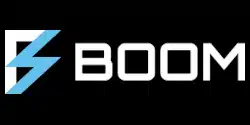Michigan Daily Fantasy Sports
Michigan daily fantasy sports sites offer legal and regulated DFS contests to fans 18 or older.
The Michigan Gaming Control Board regulates fantasy sports in Michigan and requires all operators to apply for licenses. The licensing process involves multiple background checks, third-party audits, and business investigations. In addition, Michigan fantasy sports sites must conform to state laws regarding integrity, fairness, and security. In short, Michigan sports fans can participate in DFS contests online in a fair and safe environment.
Read on for everything fans need to know about fantasy sports in Michigan. This page lists all licensed Michigan DFS sites, explains the law, and more.
Michigan Daily Fantasy Sports Sites
The Michigan Gaming Control Board (MGCB) is responsible for issuing licenses to DFS operators and ensuring they comply with all applicable regulations. Four mainstream fantasy sites hold Michigan DFS licenses today:
| Licensed Michigan Fantasy Sites |
|---|
| DraftKings DFS Michigan |
| FanDuel DFS Michigan |
| Fantasy Football Players Championship |
| RealTime Fantasy Sports |
Pick’em Fantasy Sports in Michigan
Pick’em fantasy sports contests that involve over/under predictions on athlete statistics are prohibited in Michigan.
In August 2023, the MGCB approved rules to prohibit pick’em-style fantasy games offered by operators like PrizePicks and Boom Fantasy.
For example, Michigan law prohibits contests that involve selecting two or more athletes and predicting whether they will have more or less than their projected stat totals.
The MGCB introduced the rules amid increased scrutiny nationwide of fantasy sports contests that resemble sports betting. The fact that customers play pick’em contests against the house rather than other fans further blurs the line between DFS and sports betting, resulting in pushback from regulators in multiple states.
Several operators have launched peer-to-peer pick’em contests like PrizePicks Arena as a workaround in some states, but the broad language in Michigan’s daily fantasy regulations prohibits those variants as well.
Michigan DFS Laws and Regulations
Two legal documents regulate daily fantasy sports in Michigan:
- Michigan Fantasy Contests Consumer Protection Act: MCL §§ 432.501 – 432.516
- Michigan DFS Administrative Code: Fantasy Contest Rules
The Fantasy Contests Consumer Protection Act (the Act) lays the foundation for the Michigan fantasy sports law. Lawmakers approved the Act in 2019 to legalize fantasy sports, set a few baseline rules, and grant regulatory powers to the Michigan Gaming Control Board (MGCB). After lawmakers passed the Act, the MGCB drew up additional rules to cover the finer points regulating fantasy contests in Michigan.
Consumer protection measures in the Michigan Fantasy Contests Consumer Protection Act resemble the rules introduced in numerous other states. Licensed Michigan fantasy sites must prohibit certain categories of consumers from participating in daily fantasy contests, protect nonpublic information, and much more to promote integrity, responsible gambling, and fair games.
Other Michigan DFS regulations relate to protecting customers’ funds, keeping their information private, and regularly verifying operators’ financial conditions. Additionally, the law requires Michigan fantasy sports apps to provide self-exclusion tools to customers and share information about problem gambling.
Some of the key Michigan DFS regulations include:
- Daily fantasy sports sites in Michigan must apply for licenses and pay an initial licensing fee of $10,000, followed by an annual $5,000 renewal fee
- 8.4% tax on adjusted revenue
- Fans must be 18 or older to play real-money fantasy sports in Michigan
- Michigan DFS sites must keep player funds segregated from operational funds
- DFS sites in Michigan must undergo an annual audit to ensure ongoing financial viability
- Individuals may run fantasy sports contests without a license if those contests are held in private residences, limited to no more than 15 players, collect no more than $10,000 in entry fees in any calendar year and pay at least 95% of entry fees back to players as prizes
- Scripts are prohibited unless the fantasy site makes such scripts widely available to all customers
- Michigan fantasy sports apps must offer a process by which customers can self-exclude from participating in daily fantasy
- Daily fantasy sites must clearly identify highly experienced players and provide beginners-only contests
- Michigan defines “highly experienced players” as users who have won more than three prizes worth $1,000 each or who have entered more than 1,000 contests
People restricted from participating in daily fantasy sports contests in Michigan include:
- Anyone under 18
- DFS operators, directors, officers, employees, and their same-household relatives
- Athletes, coaches, managers, officials, employees of sports organizations, and anyone else who can influence athletic events (restriction only applies to contests based on sports with which they’re affiliated)
- Individuals with access to non-public, exclusive information related to an athlete or competition
- Anyone who has self-excluded from daily fantasy contests
Licensed Michigan fantasy sports sites may not offer the following types of contests or features:
- Any method of building lineups that doesn’t require customers’ skill and knowledge, like automated drafting or choosing from pre-constructed lineups
- Proposition/prediction/pick’em contests that mimic sports betting parlays or prop bets
- Any other type of contest that mimics sports betting
- Contests determined by any statistical results of individual athletes that have been completed or partially completed and are publicly known at the time any entry is accepted (e.g., no in-play fantasy sports variants)
One other area Michigan daily fantasy sports law touches on involves responsible gambling. Licensed Michigan fantasy sports sites must make responsible gambling information pages “readily accessible” to players at all times, share links and phone numbers to problem gambling help resources, and provide mechanisms for customers to self-exclude from all future DFS contests.
How Michigan Legalized Daily Fantasy Sports
Daily fantasy sports sites hit the Michigan Gaming Control Board’s radar in 2015, the year FanDuel and DraftKings saturated TV broadcasts with ads. Michigan law did not outlaw daily fantasy sports apps at the time, but it was unclear whether DFS constituted illegal gambling under existing law.
The MGCB and Attorney General’s office confirmed they were looking into the legality of DFS but never took an official position on the matter. However, the Michigan legislature took an interest in daily fantasy sports and considered its first DFS regulation bills in 2015.
It took several tries to pass a bill legalizing daily fantasy sports in Michigan, but the legislature got it done via HB 4308 in 2019. Governor Whitmer signed it into law shortly thereafter, alongside two additional bills legalizing online casinos and sports betting in Michigan.
In addition to formally legalizing daily fantasy sports, the Fantasy Contests Consumer Protection Act created a licensing requirement for DFS operators and implemented various consumer protection measures. The MGCB adopted additional regulations to cover the finer points of daily fantasy in Michigan and establish the licensing process for DFS operators.
In May 2022, the MGCB began accepting daily fantasy license applications. A quirk in Michigan’s daily fantasy licensing rules resulted in some operators exiting the market, and none of them returned. Additional regulatory updates in 2023 banned pick’em fantasy sports contests in Michigan, further reducing the number of operators able to serve the market.
As a result, Michigan is home to just a handful of licensed fantasy apps and websites today.



